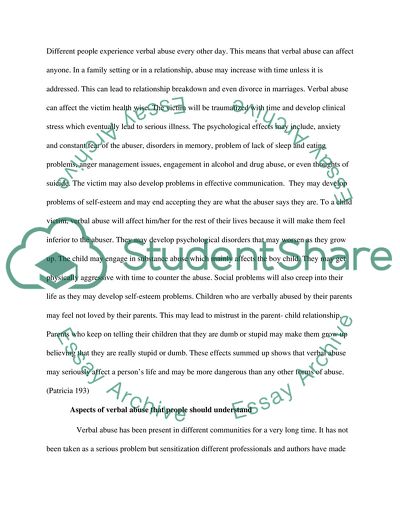Cite this document
(Interpersonal Communication: Verbal Abuse Research Paper, n.d.)
Interpersonal Communication: Verbal Abuse Research Paper. Retrieved from https://studentshare.org/social-science/1845891-interpersoncal-communication-class-research-paper-verbal-abuse
Interpersonal Communication: Verbal Abuse Research Paper. Retrieved from https://studentshare.org/social-science/1845891-interpersoncal-communication-class-research-paper-verbal-abuse
(Interpersonal Communication: Verbal Abuse Research Paper)
Interpersonal Communication: Verbal Abuse Research Paper. https://studentshare.org/social-science/1845891-interpersoncal-communication-class-research-paper-verbal-abuse.
Interpersonal Communication: Verbal Abuse Research Paper. https://studentshare.org/social-science/1845891-interpersoncal-communication-class-research-paper-verbal-abuse.
“Interpersonal Communication: Verbal Abuse Research Paper”, n.d. https://studentshare.org/social-science/1845891-interpersoncal-communication-class-research-paper-verbal-abuse.


